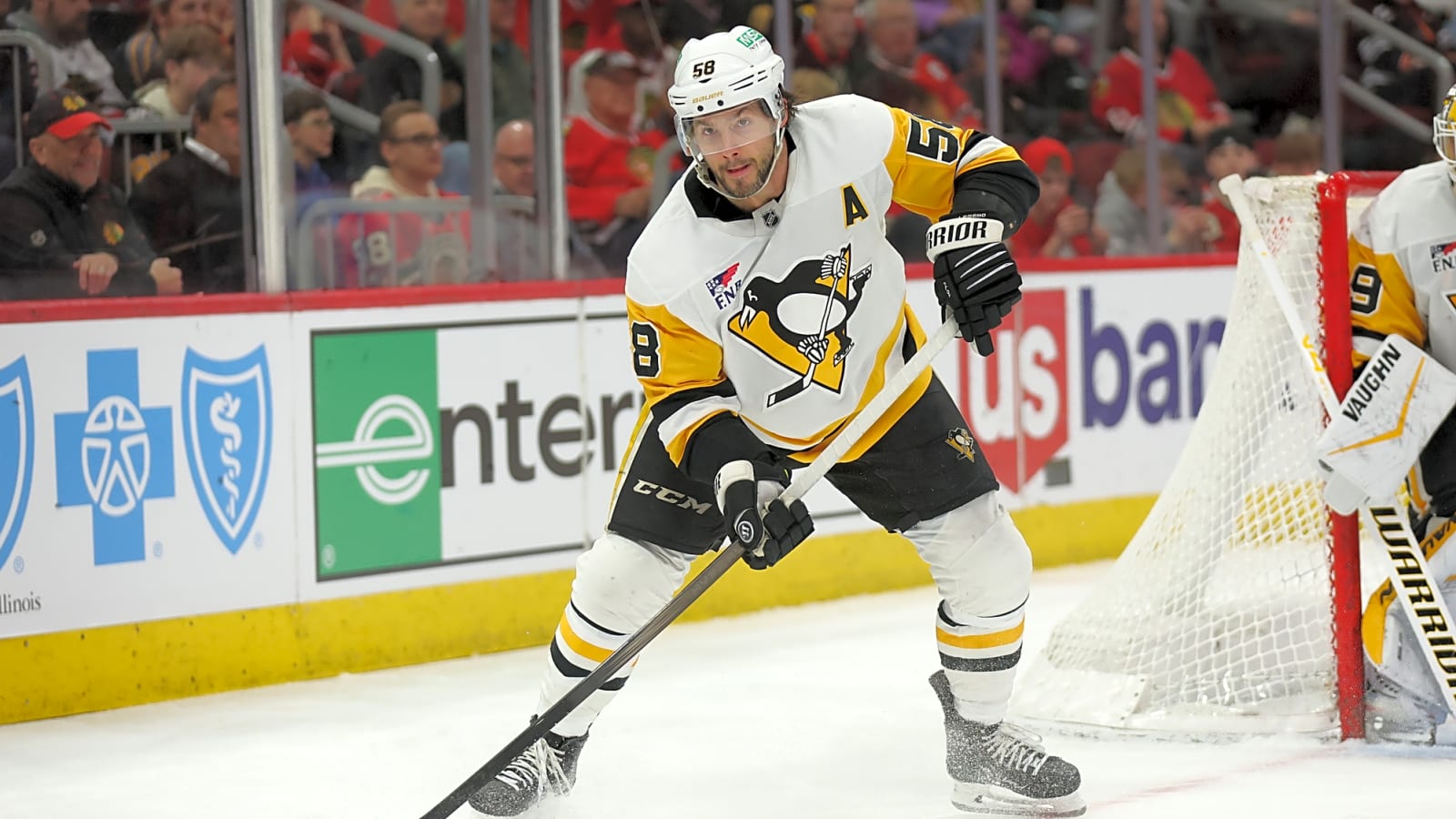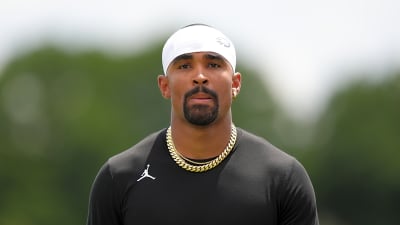
Kris Letang has been a polarizing figure amongst Penguins fans since breaking into the NHL in October of 2006. Now, Letang wouldn’t become a full-time NHLer until the following season and didn’t become a number one defenseman until the 2010-11 season. But since that time, he has held on firmly to a spot on the right side of the Penguins’ top defensive pairing, and that role has never been in doubt until the 2023-24 season, when Erik Karlsson arrived via trade. Now, the questions surrounding Letang’s role on the top unit have less to do with Karlsson’s arrival and more to do with the fact that Letang’s game has slipped in recent seasons, and it is fair to ask if he should be on the Penguins’ first defensive unit.
Letang’s 2024-25 performance was below his career norms, as he scored just nine goals and 21 assists in 74 games. His -15 plus/minus was a significant drop from the previous year, along with the 100 turnovers he committed, marking the first time he reached triple digits in that category. The 100 turnovers are a glaring problem and highlight a significant issue for Letang, as his once-elite skating seemed to falter last season. He wasn’t able to create the space he was used to and often found himself carrying the puck under pressure more than in previous years. Throughout his career, Letang has been prone to defensive lapses, even at his peak. He also has a history of making questionable decisions with the puck, which has become even more evident now that his decision-making window has narrowed due to his difficulty in creating space for himself.
Now, that aging curve is undefeated, and it’s unfair to expect Letang to defy his age forever. However, his decline in play might not have been solely due to age, as the Montreal, Quebec native faced several health issues once again last season. Letang has battled a wild amount of injuries and health conditions throughout his NHL career, and he underwent heart surgery in mid-April to close a small hole in his heart that had previously caused strokes. Letang is expected to recover in time to start the upcoming season, and it is hoped that he will be fully healthy by then.
Letang has been prone to defensive lapses throughout his career, even at the peak of his abilities. In recent years, there has been a general decline in his defensive performance, partly due to aging and partly because the Penguins have overused and overextended him, especially since the arrival of Karlsson. Some might think that Karlsson’s addition would reduce some of the pressure on Letang. However, in reality, it changed his role, expecting him to be more of a defensive defenseman, which doesn’t suit his skill set, particularly given his age.
So, what can Penguins fans expect from Letang? Well, it’s fair to wonder how far north of 20 minutes per game he can play on a nightly basis. The 38-year-old has been a workhorse throughout his career, but given his age, health, and declining skills, he shouldn’t be playing as often as he currently does. He will undoubtedly try to condition himself to reach those minutes, but if the Penguins want to get the most out of Letang, they need to ease his workload. Letang probably wouldn’t love a reduced role, but if he wants to extend his career and make a greater impact, he might need to delegate some responsibilities to other members of the Penguins’ defense core.
The Penguins lack a strong defensive core; in fact, it might be the weakest in the entire league. However, they do have considerable depth on the right side, having acquired Connor Clifton and Matt Dumba this summer, and drafting Harrison Brunicke last year, who could be ready for the NHL. Now, none of those players can replace Letang when he is at his best, but Letang’s prime is behind him now, and it’s fair to wonder if any of those men can replace a worn-out Letang in part when exhaustion catches up to him.
There are some signs that Letang could bounce back. He still trains harder than perhaps anyone in the NHL and can skate well, logging significant minutes. How effective those minutes will be remains to be seen, but Letang can handle a decent amount of ice time. His speed should continue to help him be a major part of Pittsburgh’s transition game, especially if he spends a lot of time with the Penguins’ top line of Sidney Crosby, Bryan Rust, and Rickard Rakell. Letang also remains an excellent passer and should continue to produce offense, even if other aspects of his game are more limited.
There will be challenges with Letang, and they are the same concerns the Penguins have faced in recent years. Letang has missed numerous games throughout his career due to illness and injury. There is always a risk that he could suffer another injury and miss significant time again. The Penguins have no direct replacement for Letang and need to have him in the lineup if they hope to be even average in the Eastern Conference.
Letang’s on-ice play has also become a concern as it has declined and he no longer shows the same consistency he demonstrated earlier in his career. This is expected, but since he has three years remaining on his contract, Pittsburgh is likely hoping he can improve his play again for at least another year or two. At the end of the day, Letang will be valuable to Pittsburgh. His hockey IQ should help mentor some of the younger players that the team will use this season, much like Sergei Gonchar mentored Letang early in his career. However, if Letang can adjust his game to his new reality and skill set, he could make the necessary changes to extend his career and remain in the Penguins’ top six for the next year or two. Letang has faced tough years before, battling major health hurdles, and he has always found a way to bounce back; however, this will be his biggest challenge yet.
Photo by Charles LeClaire-Imagn Images
More must-reads:
- Ken Dryden's impact on NHL went beyond his playing career
- Canadiens actually trade away Carey Price's contract — and get a player in return
- The 'College football FBS nicknames' quiz
Customize Your Newsletter
 +
+
Get the latest news and rumors, customized to your favorite sports and teams. Emailed daily. Always free!








